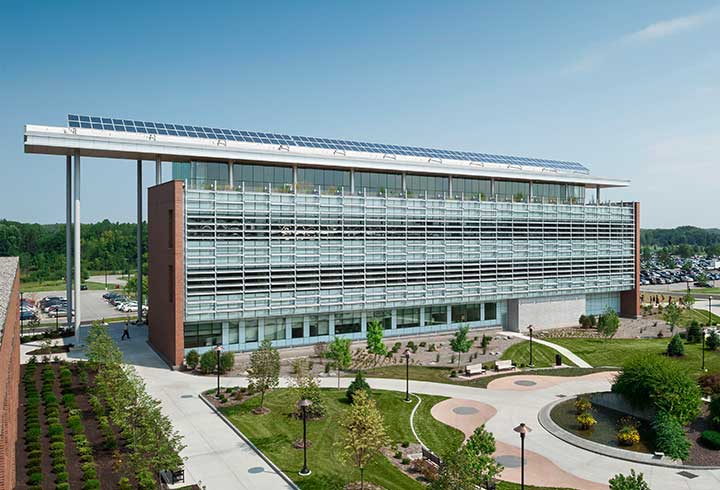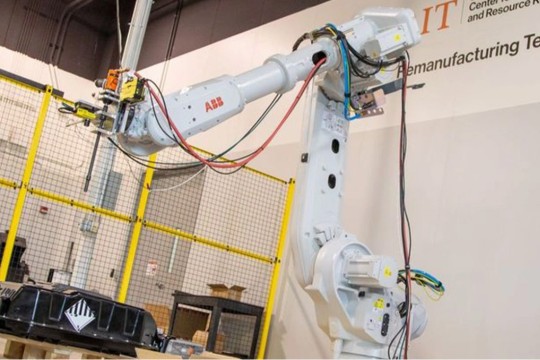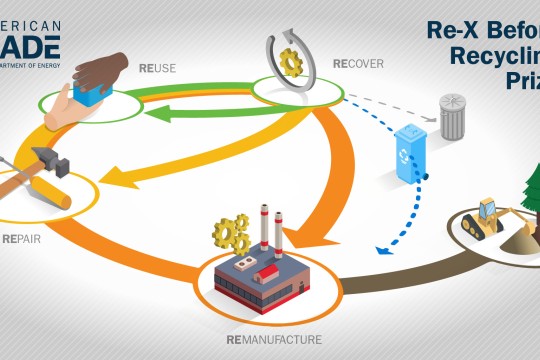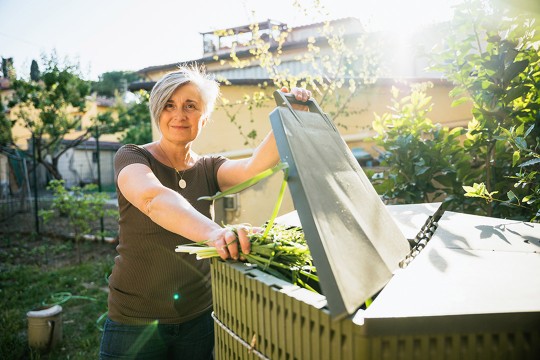Sustainability


Sustainability
Breadcrumb
- RIT/
- Sustainability
RIT is a leader in groundbreaking sustainability research, education, and engagement. The RIT campus is a living laboratory for sustainable technologies, practices, and philosophies within our built and natural environment. Every day, in all that we do, we live the principles of a sustainable community.
Undergraduate Programs
In RIT’s civil engineering technology degree, you’ll gain the practical theory, knowledge, and skills necessary to analyze and solve complex challenges posed by our nation’s growing infrastructure needs.
Learn more about the Civil Engineering Technology BS programRIT’s clean and renewable energy option in electrical engineering will prepare you to develop and implement solutions that reduce, prevent, or mitigate serious environmental threats to our planet.
Learn more about the Clean and Renewable Energy Option - Electrical Engineering BS programThe energy and environment option is focused on identifying, developing, and effectively utilizing alternative energy systems.
Learn more about the Energy and the Environment Option - Mechanical Engineering BS programCreate a sustainable future for our planet in this innovative bachelor’s degree in environmental science, where you’ll combine a love for nature with cutting-edge research.
Learn more about the Environmental Science BS programIn RIT’s environmental sustainability, health and safety degree you’ll become an effective champion in making organizations and companies more sustainable and less polluting and employees safer at work.
Learn more about the Environmental Sustainability, Health and Safety BS programPursue an innovative packaging science degree where you’ll learn how to design, develop, and test sustainable product packaging for a variety of industries including food, medical products, and consumer goods.
Learn more about the Packaging Science BS programForge your path to engineering excellence with Pre-Baccalaureate Studies in Engineering. Build your foundation.
Learn more about the Pre-Baccalaureate Studies in Engineering programLay the groundwork for a scientific future with Pre-Baccalaureate Studies in Science and Mathematics. Explore the unknown.
Learn more about the Pre-Baccalaureate Studies in Science and Mathematics programGraduate Programs
A NAAB-accredited master of architecture program that provides a well-balanced education that integrates design, technology, and research with sustainability to prepare graduates to enter the modern field of architecture.
Learn more about the Architecture M.Arch. programAn environmental science master’s degree that balances environmental conservation, human well-being, and economic development to tackle the biggest problems plaguing our environment.
Learn more about the Environmental Science MS programIn our master’s in environmental health and safety you'll acquire a foundation in the managerial aspects of developing and implementing environmental health and safety management systems to help companies meet sustainability and safety standards.
Learn more about the Environmental, Health and Safety Management MS programThe master’s in packaging science enables you to create visually stunning, environmentally friendly packaging that’s functional and durable enough to be aesthetically pleasing and sustainable for the environmental while also withstanding the stresses of distribution and transportation.
Learn more about the Packaging Science MS programThe Ph.D. in sustainability fosters innovation and creativity in solving real-world challenges within social, economic, technological, and business realms. In this inherently interdisciplinary program, you’ll become part of a network of academics from across RIT who are working to optimize sustainable systems and practices in engineering, manufacturing, energy, education, and more.
Learn more about the Sustainability Ph.D. programA sustainability degree that teaches you to apply sustainability science principles to any field to help solve the world’s grand challenges—including pollution, food scarcity, public health crises, and more.
Learn more about the Sustainable Systems MS programLatest News
-
July 19, 2024
![a piece of equipment in the R I T remanufacturing lab is shown.]()
Remanufacturing Makes Money for OEMs With a Bonus for Recyclers
Waste360 talks to Nabil Nasr, associate provost and director of Golisano Institute for Sustainability, about how remanufacturing saves in equipment and production costs while preserving energy and resources and reducing waste.
-
July 19, 2024
![A graphic depicts meaning of "Re-X" as it is used by the U.S. Department of Energy.]()
RIT-led team wins $50K to help NY companies build a circular economy piloted by Tribal Nations
In June 2024, a collobaration—Gen7—led by Rochester Institute of Technology (RIT) was awarded $50,000 by the U.S Department of Energy (DOE) as a first-round winner of the Re-X Before Recycling Prize. Gen7 aims to create economic opportunities for American Indian-owned enterprises across the United States by building a circular economy business model and supply chain for remanufactured office furniture.
-
July 19, 2024
![a woman in a green shirt opens the top of a compost bin.]()
NYSP2I selects 10 awardees for 2024-2025 Community Grants Program
The New York State Pollution Prevention Institute (NYSP2I) has announced selections for its 2024-2025 Community Grants Program as part of the organization’s ongoing efforts to continue improving the health and environmental quality of New York state.
-
July 3, 2024
![an amber colored photo shows a researcher taking a round chip off a plate.]()
RIT, partners awarded $40 million to boost the semiconductor industry across the region and nation
RIT will be part of a NY SMART-I Corridor Technology Hub focused on semiconductor manufacturing and innovation. The Corridor Tech Hub, one of 12 Tech Hubs in the nation, is expected to bring $40 million in federal funding to the region.























